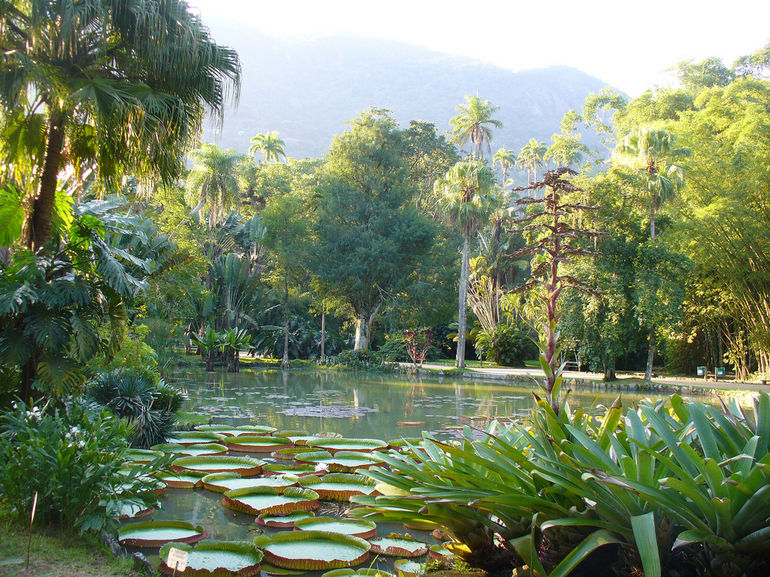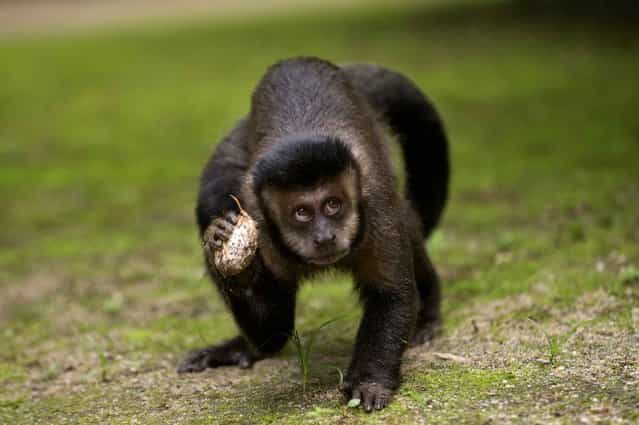Rio de Janeiro
Botanical Garden - The most acclaimed statue of Jesus is additionally viewed as
the biggest Art Deco statue on the planet. It is the fifth biggest statue of
Jesus on the planet with a tallness of 30 meters (98 ft) – excluding its 8
meters (26 ft) platform. The statue's arms extend 28 meters (92 ft) wide. It is
situated at the pinnacle of the 700-meter (2,300 ft) Corcovado mountain. The
statue has turned into a symbol for Rio de Janeiro and Brazil's most well known
landmark. It was built somewhere around 1926 and 1931.
It was established in 1808 by King John VI of Portugal.
Initially proposed for the acclimatization of flavors like nutmeg, pepper and
cinnamon imported from the West Indies, the garden was opened to people in
general in 1822, and is currently open amid sunlight hours consistently aside
from 25 December and 1 January.
The 140-hectare stop lies at the foot of the Corcovado
Mountain, far beneath the right arm of the statue of Christ the Redeemer and
contains more than 6,000 distinct types of tropical and subtropical plants and
trees, including 900 assortments of palm trees. A 750 m line of 134 palms
frames the Avenue of Royal Palms driving from the passageway into the greenery
enclosures. These palms all plummeted from a solitary tree, the Palma Mater,
since a long time ago demolished by lightning. Just around 40% of the
recreation center is developed, the rest of Atlantic Forest ascending the
slants of Corcovado. The recreation center is secured by the Patrimônio
Histórico e Artístico Nacional and was assigned as a biosphere hold by UNESCO
in 1992.
The Botanical Garden has an essential research
establishment, which builds up an extensive variety of organic studies in
Brazil. The foundation has taxonomists who have some expertise in the
distinguishing proof and preservation of the neotropical verdure.
Components of intrigue incorporate an old black powder
production line, the Victoria lilies in the Lago Frei Leandro lake, the
Japanese Garden, and numerous models and wellsprings.


No comments:
Post a Comment